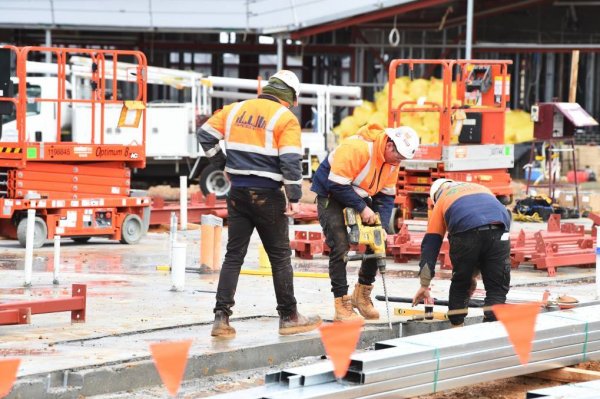The Prime Minister Scott Morrison has singled out industrial relations and the vocational education and training (VET) system as a key components in his JobMaker plan to rebuild the Australian economy post-COVID. With 1.3 million Australians currently in receipt of the JobSeeker payment, millions more underemployed, and businesses rethinking how and what work is done in a socially distant and increasingly digital world – the VET system faces a significant challenge to meet these skill needs.
How well it will do, and how it will help women in particular, are critical questions given so many job losses have been in feminised industries.
Last year more than 4.1 million people enrolled in VET. Of these 47 percent were women. By contrast in higher education women make up 56 percent of enrolments.
 To those arguing we need more women in VET – the reality is that there is a significant wage premium for female university graduates compared with their VET counterparts: $61,500 compared with $52,100 for female VET graduates. By contrast men initially earn only $700 more per annum from higher education study over VET.
To those arguing we need more women in VET – the reality is that there is a significant wage premium for female university graduates compared with their VET counterparts: $61,500 compared with $52,100 for female VET graduates. By contrast men initially earn only $700 more per annum from higher education study over VET.
The reasons for these wage differences relate to the different occupations that each sector prepares graduates to work in. In short, if childcare workers, carers, retail, hospitality and administrative workers earned more – then VET would likely be a more attractive proposition for women.
The JobMaker VET reforms
Even before the pandemic there were reforms underway in VET to reduce its complexity, strengthen regulation and ensure graduates have more industry-relevant skills (especially given the changing world of work) by better connecting industry with the training sector. The Commonwealth government’s reforms also include the establishment of a National Careers Institute to provide prospective students with better careers information, and the creation of a National Skills Commission to improve the identification and planning for skills shortages.
The contentious part of the VET reform debate lies ahead. It will focus on the Commonwealth, States and Territories reaching agreement on the role of TAFE, the benefits or otherwise of funding private and community providers, and the overall quantum of funding the sector requires.
For women enrolled in VET it is the level of funding for the courses they enrol in, rather than the type of provider they study with, which is the critical issue.
These are crucial debates for the country more broadly but for women enrolled in VET it is the level of funding for the courses they enrol in, rather than the type of provider they study with, which is the critical issue.
It is only community-based providers which enrol a majority of female students (66%), albeit the community sector itself is small with only nine percent of all VET students. In all other provider types women have the same level of representation. And VET graduates consistently report high levels of satisfaction irrespective of the type of training provider they study with.
 Due to the complexity of VET funding it is difficult to determine if a widespread gender bias exists but problems with the design of the VET Student Loan scheme (similar to higher education’s HECS-HELP) had a disproportionate impact on women. In light of evidence to that effect the government has made some changes and more are proposed by the Productivity Commission along with much greater transparency on course subsidies.
Due to the complexity of VET funding it is difficult to determine if a widespread gender bias exists but problems with the design of the VET Student Loan scheme (similar to higher education’s HECS-HELP) had a disproportionate impact on women. In light of evidence to that effect the government has made some changes and more are proposed by the Productivity Commission along with much greater transparency on course subsidies.
Responding to COVID-19
State and Territory governments have quickly rolled out a range of free short VET courses to help those impacted by the pandemic. While some courses are designed to help students gain digital skills, many are focused on jobs which were already being automated pre-COVID, such as business administration.
A comprehensive skills response from all governments will be needed to help displaced workers, particularly women.
Australia has never before experienced an economic downturn which has impacted women more heavily than men. A comprehensive skills response from all governments will be needed to help displaced workers, particularly women. This will require a significant injection of funding targeted at affected industries and an eye on future skill needs in a changing employment landscape.
Indigenous women in VET
Aboriginal and Torres Strait Islander people are overwhelmingly more likely to enrol in VET than in higher education. While efforts are underway to lift their participation in higher education, the good news in VET is that indigenous learners who complete a high level qualification (diploma and above) have similar employment outcomes to non-Indigenous graduates.
Indigenous women who complete lower level VET courses have much lower employment rates than indigenous men and non-indigenous graduates of the same qualifications.
The very concerning news is that indigenous women who complete lower level VET courses (certificates I to IV) have much lower employment rates than indigenous men and non-indigenous graduates of the same qualifications.
Former New Zealand Minister, Steven Joyce, has been a key figure in the Commonwealth government’s VET reforms. In his March 2019 report he specifically highlighted the issues facing indigenous learners in VET and recommended additional funding and that the Commonwealth support the development of more quality Indigenous-owned-and-led training organisations.
To date this is the only area of Joyce’s report not to be actioned. Equally concerning is that there is no mention of indigenous learners in the draft VET reform roadmap being progressed by all governments.




